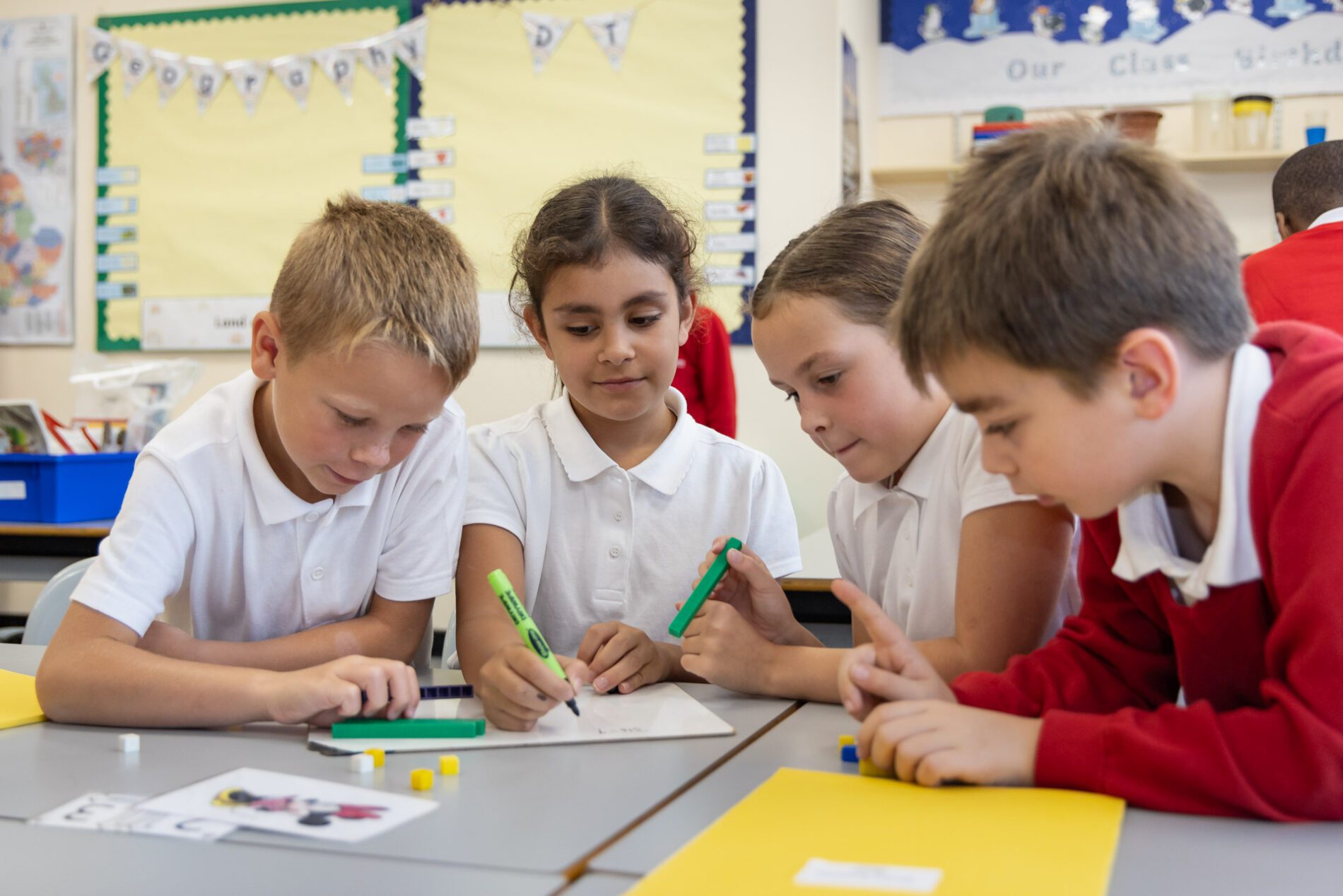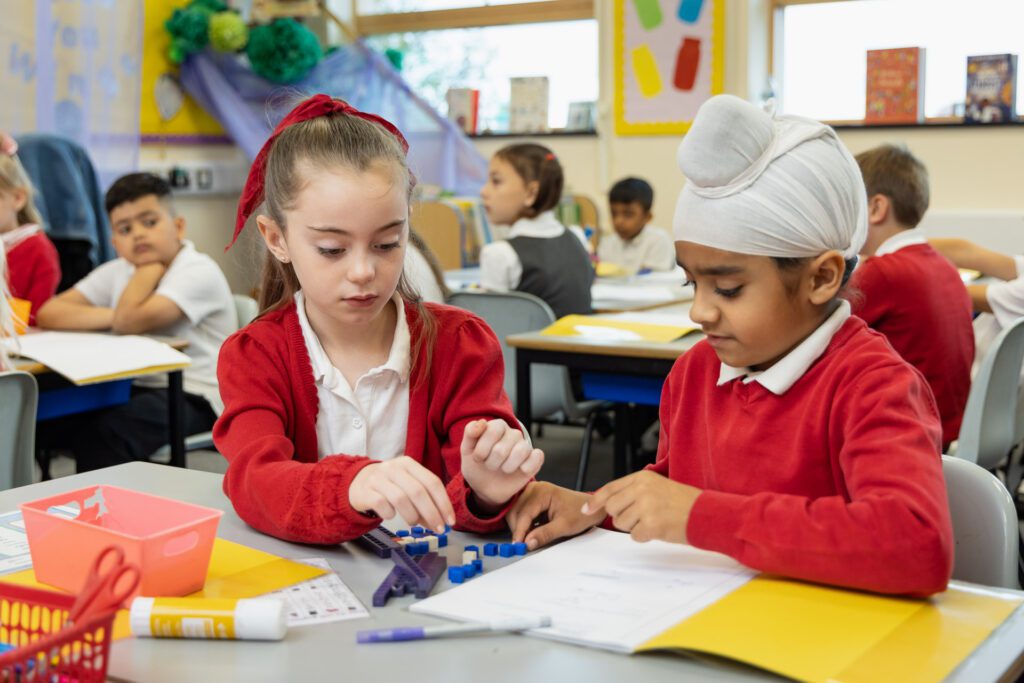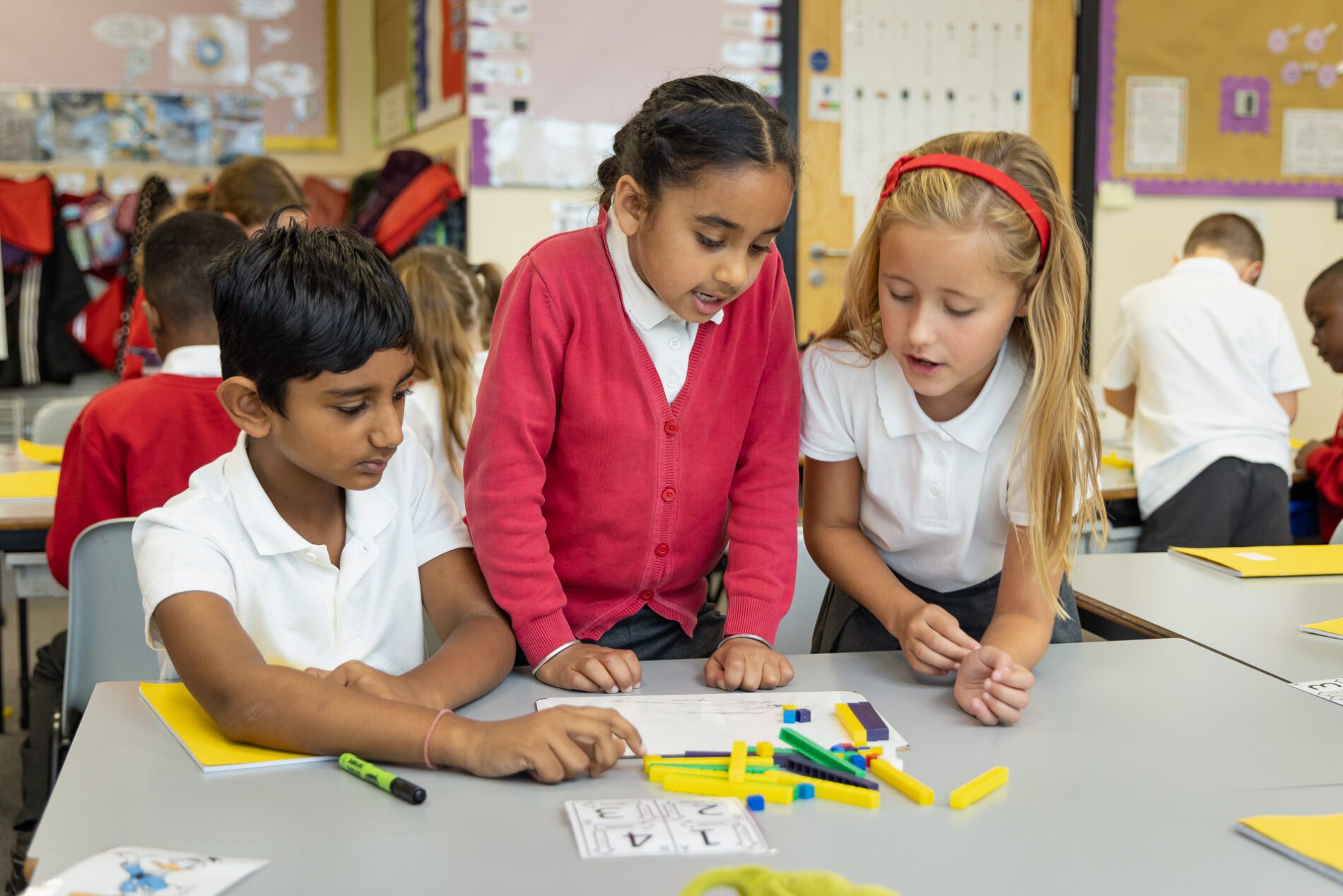Mathematics Subject Leader: Miss J Burns
For any more information on St Botolph’s Mathematics Curriculum, please contact the office.
“Mathematics at St Botolph’s inspires the growth mindset and belief necessary for mastery through inter-connected fluency and conceptual understanding, using the exploration of mathematical thinking and language and communication, essential to everyday life.”
Intent
Mathematics at St Botolph’s inspires the growth mindset and belief necessary for mastery through inter-connected fluency and conceptual understanding, using the exploration of mathematical thinking and language and communication, essential to everyday life. Children are provided with enriching mathematical experiences which foster enjoyment and curiosity, as well as builds strong foundations in mathematical understanding and the acknowledgement of the importance of mathematics in society. High expectations of pupils ensure that they are appropriately challenged throughout the entirety of their school journey.


Implementation
Our use of Mathematics Mastery empowers our staff to make personalised support and extension, ensuring success for all. The six-part lesson provides building blocks for conceptual understanding, mastery and efficiency, with both guided and independent practice. Knowledge is embedded across the year through:
- same-day interventions, addressing misconceptions and reducing gaps
- weekly maths meetings (visuals, singing, active participation) for fluency, consolidation and confidence.
Through the use of Feedback Marking, a personalised pace is used in each classroom, with lessons ensuring consolidation before acquiring new material, or developing/deepening understanding. Lesson time is valued with smooth, purposeful transitions, ensuring both the flow of each lesson and that every second counts.
We encourage mathematical communication: equipping children with the language required to explain, justify and prove whilst valuing all contributions (including mistakes) through supportive discussion. We follow the concrete, pictorial, abstract progression, using manipulatives and mathematical drawings for making connections and moving fluently between multiple representations. Pupils further challenge their thinking through opportunities to investigate and reason.
Beyond the classroom, we foster a love of mathematics through celebrating effort, mindset and achievement and regular rehearsal of arithmetic:
- maths passports – the rehearsal and acquisition of skill at their own pace and level, with regular reward and celebration
- Big Maths Beat That – weekly opportunities to beat their previous score to become contenders for whole school competitions
- DoodleMaths and Times Tables Rockstars competitions through which classes, year groups and phases compete weekly and termly.
To achieve the necessary consistency and support for our pupils at home, regular curriculum workshops for parents and carers are held throughout the year. In addition, the Mathematics Subject Leaders attend relevant training to effectively support the teaching and learning of mathematics across the whole school, through coaching, staff meetings, staff development days and workshops.
Impact
Our children are supported to develop resilience, stamina and autonomy, equipped with various strategies for personal efficiency and self-marking for instant feedback and intervention; pupils move their learning forward immediately without the reliance on adults. Self-reflection opportunities enable children to review their own successes and struggles, recording their mathematical thinking, insight and journey in that lesson.
All work is checked with comprehensive notes written from the entire set of books: recording common misconceptions; errors in basic skills; pupil names (those succeeding, exceeding or needing support); subject specific knowledge and skill is used for whole class (and, if needed, individual) feedback, taking place before any new learning. Progression is therefore evidenced in our books through regular purple pen work by our pupils; sufficient time is given to review, edit and improve (revisiting with adult support where necessary).
Formal assessment includes weekly times tables tests, half termly online tests and termly arithmetic and reasoning papers. These are used to track progress and attainment throughout the year (by class teachers, the Mathematics Leaders and SLT), informing end of year data. Statutory testing includes the year four Multiplication Tables Check and both the Key Stage 1 and Key Stage 2 SATs assessments (for both arithmetic and reasoning).


Mathematics in Each Stage
Our Maths mastery approach begins in EYFS. Using the White Rose scheme of learning, our children begin to learn mathematical concepts using real life examples and exploration to begin the building blocks for their mathematical knowledge. Through whole class learning and continued provision, children in EYFS learn:
Recognise numbers to 10, Subitise to 5. Number bonds to 5. Doubling numbers to double 5. Count beyond 20. Counting in 2s and 10s. Compare quantities using vocabulary more, less, greater, and fewer. Share quantities equally. Add and subtract within 10 using counting resources. Complete and create a simple repeating pattern. Recognise 2D shapes – square, circle, rectangle, triangle, oval. Recognise 3D shapes – cube, cuboid, cylinder, sphere. Incidental learning opportunities for Maths are also incorporated into the day to ensure that children retain more. (spaced learning).
In Years 1 and 2 children will be given a really solid foundation in the basic building blocks of mental and written arithmetic. Through being taught place value, children will develop an understanding of how numbers work, so that they are confident with 2-digit numbers and beginning to read and say numbers above 100. In KS1 children are encouraged to use concrete manipulatives and resources to support their mathematical thinking, the use of a CPA (Concrete, pictorial & abstract) approach allows children to see the structure of the mathematical concepts that they are learning which will be revisited throughout their school journey in a concrete representation. We have a range of concrete resources that children can access independently to support them with their learning, such as Numicon, dienes, Cuisenaire rods & tens frames, to name a few. The use of the White Rose scheme allows children to see the pictorial representations before finally moving on to the abstract representation.
In KS2 children begin to make more links to the previous key stage’s learning. We build on core concepts within mathematics and link these to new concepts. In KS2 children still use their reasoning and problem-solving skills and use sentence stems to explain their mathematical thinking. Our maths mastery focus ensures that children are exposed to a range of mathematical structure, variation in mathematical concepts and increased opportunities to develop automaticity in their fluency. In Lower Key Stage 2, children build on the concrete and conceptual understandings they have gained in Key Stage 1 to develop a real mathematical understanding of the four operations, in particular developing arithmetical competence in relation to larger numbers. This knowledge and understanding is then built on in Upper Key Stage 2 when children move on from dealing mainly with whole numbers to performing arithmetic operations with both decimals and fractions.
What does Maths look like in year 3?
What does Maths look like in year 4?
Mathematics Progression
SEND Information
At St Botolph’s C of E Primary School, we ensure that we provide opportunities for all to feel successful in their maths learning. For children with SEND, specific targets (if appropriate) are set for children with their area of need identified. Our adults are empowered to support and/or challenge children with SEND to meet their targets using high quality resources, planning and teaching to ensure that all children have the ability to show their mathematical thinking, make links between their learning and to develop their understanding of mathematical concepts. As outlined in the Kent Mainstream Core Standards, the use of adaptive teaching strategies such as scaffolding, concrete representative and small steps ensure that all children are provided with any support they need to enable access for all.

